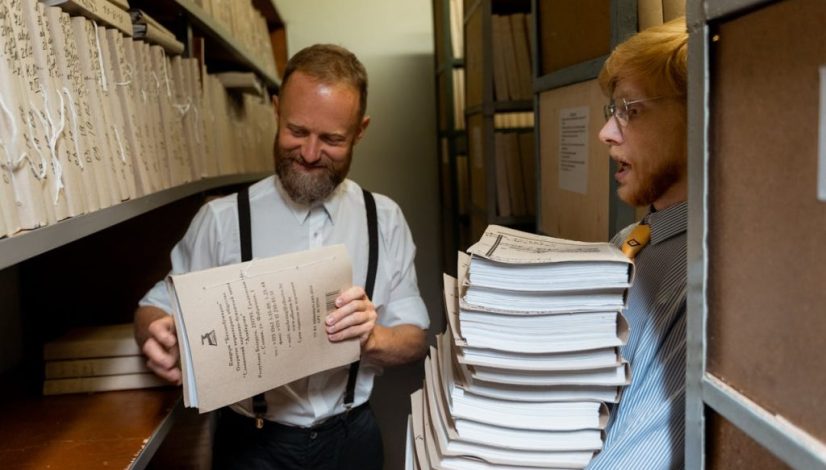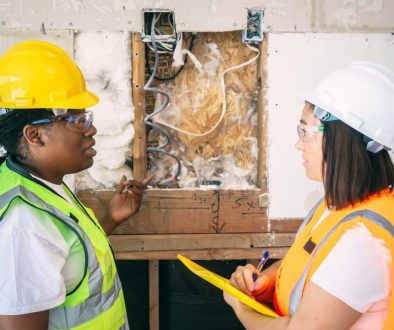Document Retention Guide: How Long Should You Keep Your Records?
Update to our post, ‘Builders: How Long Should You Keep Those Documents?’.
In construction, every document tells part of your project’s story — and sometimes, that story is what protects your business. Builders often ask how long they should keep project records, contracts, or correspondence after a job is complete. The answer isn’t one-size-fits-all. It depends on the document type, the nature of the project, and what Texas law requires.
Under the Texas Statute of Repose, owners can file certain construction defect claims for up to ten years after substantial completion, with possible extensions up to twelve. That means your recordkeeping practices should align with these legal timelines, not just internal preferences.
This guide from Fort Worth Construction Attorney Joe Tolbert, Board Certified in Construction Law, explains how long builders should retain project files, outlines the key elements of a Document Retention Policy (DRP), and offers practical steps to protect your company from risk and unnecessary liability.
Why Builders Need a Document Retention Policy
A Document Retention Policy (DRP) sets clear rules for how long construction documents must be stored and how they should be destroyed.
A strong DRP ensures compliance, consistency, and accountability — especially when facing audits or disputes.
A comprehensive DRP should include:
- Procedures for closing project files after completion
- Schedules for reviewing and destroying records
- Designated personnel for approval of destruction
- Procedures for handling litigation hold notices
- Approved destruction methods (shredding, certified disposal)
- Documentation of destruction dates and methods
For more insights on proactive compliance and documentation, see our Construction Law Services page.
How Long Should Builders Keep Construction Documents in Texas?
Builders in Texas should keep most project-specific records for 13 years after substantial completion — that’s the 10-year Statute of Repose plus one year for potential extensions and two years for administrative safety.
This includes:
- Contracts, purchase orders, and change orders
- Drawings, RFIs, and submittals
- Project diaries, meeting minutes, and correspondence
- Progress photos and field reports
- Certificates of insurance
Keeping these files helps preserve critical details when disputes arise years after completion.
Other Retention Periods for Key Record Types
| Document Type | Suggested Retention | Notes |
|---|---|---|
| Corporate Records | Permanent | Includes articles of incorporation, bylaws, meeting minutes |
| Financial & Tax Records | 7 years | Aligns with IRS audit timelines |
| Capital Asset Records | Life of asset + 7 years | Keep until asset is fully depreciated |
| Employment & Payroll Files | 7 years after termination | To meet federal and state employment law requirements |
What Is a Litigation Hold Notice?
A litigation hold notice directs employees to preserve all potentially relevant records when a claim, investigation, or dispute arises.
Destroying documents after receiving a hold notice could result in court sanctions or weakened defense in litigation.
If you receive such a notice, contact a qualified Texas construction attorney immediately before taking any action. See the Texas Civil Practice and Remedies Code §16.009 for statutory details.
Why Recordkeeping Protects Builders
Document retention isn’t just compliance — it’s defense. Years after a project ends, the only proof of what really happened may live in your records. Detailed documentation supports dispute resolution, insurance claims, and regulatory compliance.
Without a clear DRP, builders risk losing crucial evidence, violating legal hold requirements, or facing unnecessary legal exposure.
Protect Your Business with a Tailored Document Retention Policy
Each construction company faces unique risks. A tailored Document Retention Policy balances storage costs with legal protection — helping you safely eliminate outdated files while preserving the evidence that defends your work.
For professional help creating or reviewing your DRP, contact Joe Tolbert, Board Certified in Construction Law by the Texas Board of Legal Specialization.
Call 817.338.1700 or schedule a consultation today to protect your next project.



